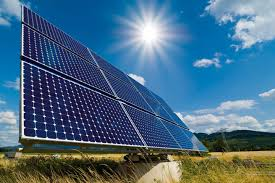Solar Energy as a Solution in Sustainable Architecture and Intelligent Buildings (Case study: Ahvaz city)
Keywords:
sustainable architecture, intelligent building, solar energy, AhwazAbstract
The use of new energies isinevitable in line with sustainable development plans due to environmentalpollution, global warming and the increasing use of fossil fuels. The use offossil fuels is associated with greenhouse gas emissions and thereby globalwarming as well as secondary impacts such as desertification and dust storms inthe Middle East including in Iran. The use of renewable energy is the bestsolution to avoid greenhouse gas emissions. Ahvaz City with a population ofabout 1338126 people and 3080.2 sunny hours per year is located in southwesternIran. Ahvaz is among the best locations for application of solar systems. This is an analytical research carried out by desk study method. The presentpaper aims at evaluating the use of solar energy as a strategy for sustainablearchitecture and intelligent buildings in Ahwaz.
References
Bronman, J., 1996. Popular Development. London: Black Well Publishers.2-Daftarian M. Place of consumption
pattern and clean energy for earth life continuance gas against coal. Ener. Fresh News., 2,p.p 56-57 (In
Persian).
Energy Daftarian usage increase in the world., 2009. Available from: URL: )http://www.noorportal.net (In Persian).
Eyvazi, Z., 2003. Sun water heater usage in the residential/commercial areas of TEHRAN 22nd area of municipality
and its effects in the environment improvement. (In Persian).
IEA, International Energy Agency, Online Data Services, Available from: URL:http: // www.iea.org. (In Persian).
Iran new energies organization. What do you know about energy? Biomass energy. (In Persian).
Iran new energies organization. What do you know about energy? Solar energy. (In Persian).
James, J., 2005. Earth scan .Planning and Installing Solar Thermal Systems: A Guide for Installers, Arch. Eng.
Technol. Eng., 298 pages.
kaabinejadian, A.R., 2006. Technology new of energies. NO. 20. (In Persian).
Khoshakhlagh, R., Sharifi, A.M., 2005. kochakzadeh M Economical estimation of the solar energy usage comparing
to diesel power plant. Quarterl period. economy. res., NO. 24, 171-192. (In Persian).
Khozestan state capital building programming assistance. Khozestan statistical., 2007. (In Persian).
Munari Probst, M.C., Roecker, C., 2012. SOLAR ENERGY SYSTEMS IN ARCHITECTURE integration criteria and
guidelines, Report T.41.A.2: IEA SHC Task 41 Solar ener. Arch., September.
PEYMAN, R., 2004. Introducing The Absorption Chiller Performance And Intelligent Sun Panel In The Building
Industry, Conferense Of Iran Civil Engineering Students (Cesc XI).2004 Dec.16-19,Hormozgan, Iran, p.p 22-31.(
In Persian).
Robertson, K., Athienitis, A., 2009. solar energy for buildings Canada Mortgage and Housing Corporation Canada
Mortgage and Housing Corporation. Solar build., 35 pages.
Shaghayeghi, S., Maddah, M., 2012. The use of solar energy in architecture, an approach to sustainable
architecture. Symbol of Golestan, p.p 33-37.
Tiwari, G.N., 2006. Solar Energy Technology Advances. Nova Publishers, Technol. ngineer., 138 pages.
Wigginton, M., HarrisJude., 2002. intelligent skin. A divis. Reed Educat. Profess. Publish. Ltd, Oxford, London.
URL:http: // www.iea.org.

Published
How to Cite
Issue
Section
Copyright (c) 2020 Maryam Nikpour, Mehdi Mahdavi Adeli

This work is licensed under a Creative Commons Attribution-NonCommercial-NoDerivatives 4.0 International License.



